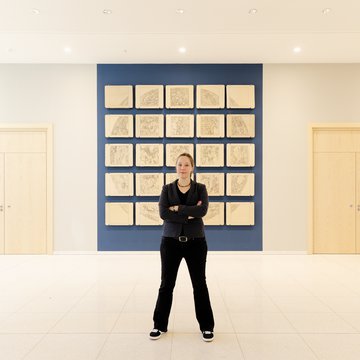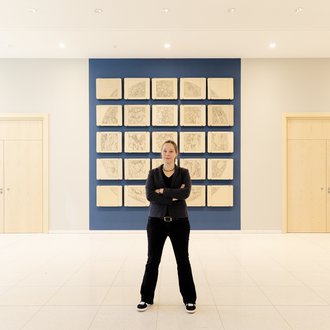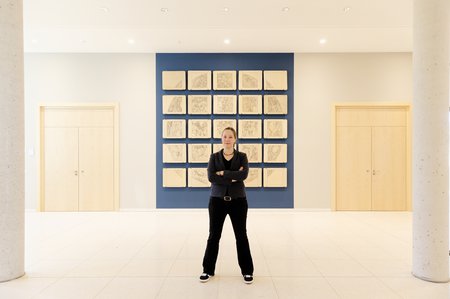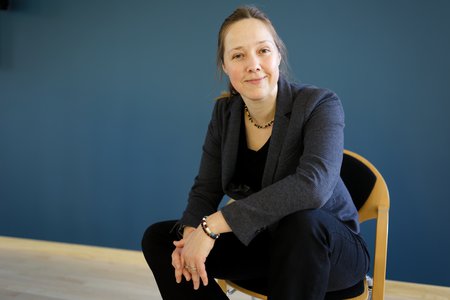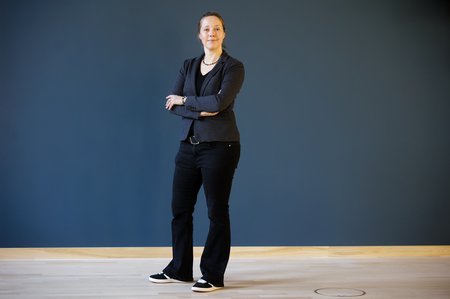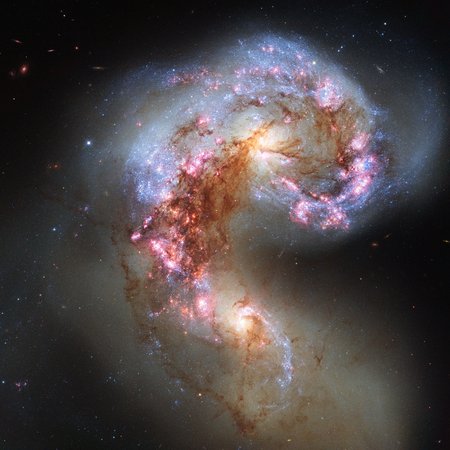ERC Consolidator Grant for Exoplanet Research
The European Research Council (ERC) has awarded a grant of 2 million euros to the “Evaporator” project led by Professor Katja Poppenhäger. The aim of the five-year research project is to understand how exoplanets lose their initial hydrogen-helium atmosphere and create space for a second atmosphere that can finally enable the development of life.
The size and chemical structure of planetary atmospheres can provide information on the circumstances of planet formation. The AIP research branch “Stellar, Solar and Exoplanetary Physics”, led by Katja Poppenhäger, uses photometric and spectroscopic methods to study the atmospheres of exoplanets and the extreme radiation to which they are exposed.
Exoplanets start their existence with a dense shell of hydrogen and helium. However, this first atmosphere is often destroyed by vaporization processes triggered by the central star, which in turn can lead to the formation of a new atmosphere and enable the development of life. To understand the evaporation of the first atmospheres, transit observations of exoplanets based on their metastable helium lines are the best observation window. “Evaporator” aims to better understand the mechanisms behind this loss of atmosphere. But interpretating the data is extremely complex, because the fraction of metastable helium in the planetary atmosphere is controlled by a very small but incredibly difficult to observe part of the extreme ultraviolet spectrum of the central star. To fill this gap, Katja Poppenhäger and her team will use the “Evaporator” project to develop a method for accurately reconstructing this crucial part of the star’s spectrum.
“The funding will allow us to determine the evaporation of exoplanet atmospheres more reliably and to better understand its significance for the development of potentially life-friendly planets,” says Katja Poppenhäger. “With ‘Evaporator’, we are entering a completely new area of exoplanet research.”
About the ERC – The European Research Council funds outstanding scientists of all nationalities and ages carrying out projects in Europe. The Consolidator Grant is awarded to researchers who are looking forward to a promising scientific career. The European Research Council has selected 328 excellent projects from over 2300 applications in the current round of ERC Consolidator Grants.
Further information
Website of the Stellar Physics and Exoplanets research section
The European Research Council (ERC) has awarded a grant of 2 million euros to the “Evaporator” project led by Professor Katja Poppenhäger. The aim of the five-year research project is to understand how exoplanets lose their initial hydrogen-helium atmosphere and create space for a second atmosphere that can finally enable the development of life.
The size and chemical structure of planetary atmospheres can provide information on the circumstances of planet formation. The AIP research branch “Stellar, Solar and Exoplanetary Physics”, led by Katja Poppenhäger, uses photometric and spectroscopic methods to study the atmospheres of exoplanets and the extreme radiation to which they are exposed.
Exoplanets start their existence with a dense shell of hydrogen and helium. However, this first atmosphere is often destroyed by vaporization processes triggered by the central star, which in turn can lead to the formation of a new atmosphere and enable the development of life. To understand the evaporation of the first atmospheres, transit observations of exoplanets based on their metastable helium lines are the best observation window. “Evaporator” aims to better understand the mechanisms behind this loss of atmosphere. But interpretating the data is extremely complex, because the fraction of metastable helium in the planetary atmosphere is controlled by a very small but incredibly difficult to observe part of the extreme ultraviolet spectrum of the central star. To fill this gap, Katja Poppenhäger and her team will use the “Evaporator” project to develop a method for accurately reconstructing this crucial part of the star’s spectrum.
“The funding will allow us to determine the evaporation of exoplanet atmospheres more reliably and to better understand its significance for the development of potentially life-friendly planets,” says Katja Poppenhäger. “With ‘Evaporator’, we are entering a completely new area of exoplanet research.”
About the ERC – The European Research Council funds outstanding scientists of all nationalities and ages carrying out projects in Europe. The Consolidator Grant is awarded to researchers who are looking forward to a promising scientific career. The European Research Council has selected 328 excellent projects from over 2300 applications in the current round of ERC Consolidator Grants.
Further information
Website of the Stellar Physics and Exoplanets research section
Images
Big screen size [1000 x 666, 60 KB]
Original size [5416 x 3610, 1.5 MB]
Big screen size [1000 x 666, 50 KB]
Original size [5472 x 3648, 1.0 MB]
Big screen size [1000 x 666, 40 KB]
Original size [5213 x 3475, 900 KB]
